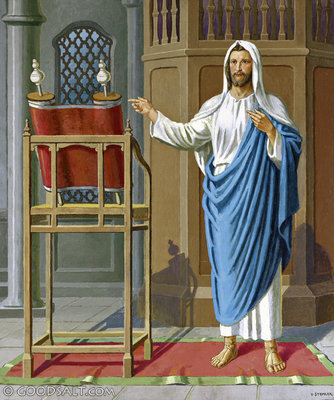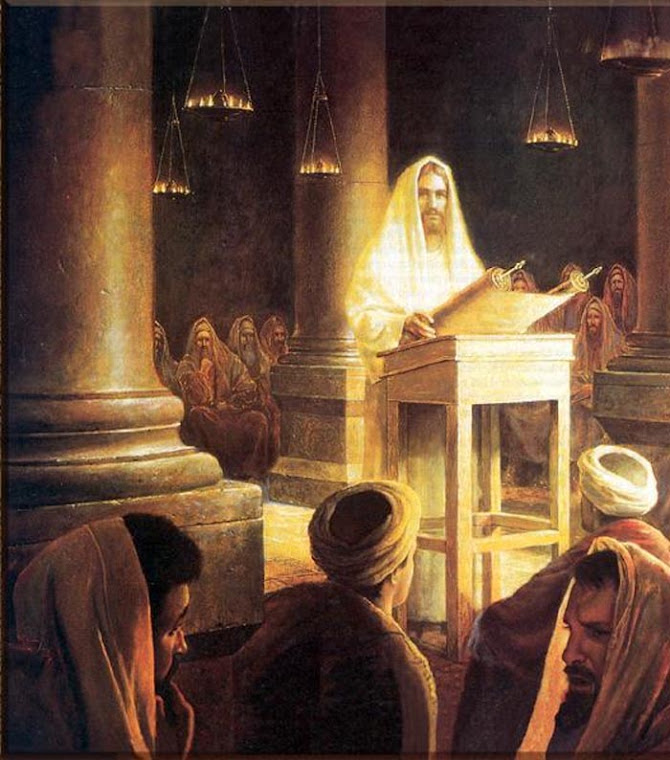
We live in times and in a culture where maturity is often significantly delayed. In fact there are many in our culture who never grow up. I have argued elsewhere that one paradigm of our culture is to that it is fixated on teenage years. Fixation is a psychological description of a person who has not successfully navigated one of the stages of infancy and youth and thus remains stuck in the thinking and patterns of that stage, to one degree or another. Out culture’s fixation on teenage issues and attitudes is manifest in some of the following:
- Irrational aversion to authority
- Refusal to use legitimately use the authority one has
- Titillation and irresponsibility regarding sexuality
- General irresponsibility and a lack of personal accountability
- Demanding all of one’s rights but avoiding most of one’s responsibilities
- Blaming others for one’s own personal failings
- Being dominated by one’s emotions and carried away easily by the passions
- Obsession with fairness evidenced by the frequent cry, “It’s not fair!”
- Expecting others and government agencies to do for me what I should do for myself
- Aversion to instruction
- Irrational rejection of the wisdom of elders and tradition
- Obsession with being and looking young, aversion to becoming or appearing old
- Lack of respect for elders
- Obsession with having thin and young looking bodies
- Glorification of irresponsible teenage idols
- Inordinate delay of marriage, widespread preference for the single life
Now it is true that some of the things above have proper adult version. For example, the “obsession with fairness” matures and becomes a commitment to work for justice. Aversion to authority can be matured to a healthy and respectful insistence that those in authority be accountable to those they serve. And so forth. You may choose to take issue with one of more of the above and you may wish to add some distinctions. It is also a fact that not every teenager has all the issues listed above. All that is fine, but the point here is that the culture in which we live seems stuck on a lot of teenage attitudes and maturity is significantly delayed on account of it.
Some may also allege a kind of arrogance in my description of our culture as teenage. I accept that it is a less than flattering portrait of our culture and welcome your discussion of it. But I ask, if you reject the image of “teenage,” how would you describe our culture? Do you think that we live in an overall healthy and mature culture?
The Call to Maturity and the role of the Church – In the midst of all this is the expectation of the God through his Scriptures that we grow up, that we come to maturity, to the fullness of faith, to an adult faith. Further, the Church is expected, as an essential part of her ministry, to bring this about in us through God’s grace.
In the letter to the Ephesians, Paul has this to say:
And [Christ] gave some as Apostles, others as prophets, others as evangelists, others as pastors and teachers, to equip the holy ones for the work of ministry, for building up the Body of Christ, until we all attain to the unity of faith and knowledge of the Son of God, to mature manhood to the extent of the full stature of Christ, so that we may no longer be infants, tossed by waves and swept along by every wind of teaching arising from human trickery, from their cunning in the interests of deceitful scheming. Rather, living the truth in love, we should grow in every way into him who is the head, Christ(Eph 4:11-15)
Coming to maturity is a basic task in the Christian walk. We are expected grow and come to an adult faith. The Letter to the Hebrews has something very similar to say:
You are slow to learn. In fact, though by this time you ought to be teachers, you need someone to teach you the elementary truths of God’s word all over again. You need milk, not solid food! Anyone who lives on milk, being still an infant, is not acquainted with the teaching about righteousness. But solid food is for the mature, who by constant use have trained themselves to distinguish good from evil. (Heb 5:11-14)
Notice that the Ephesians text says that Christ has given Apostles, prophets, evangelists, pastors and teachers, to equip the holy ones unto this. The Church is thus expected in a certain sense to be “the adult in the room.” She is to summon us to live responsible, mature lives. She summons us to be accountable before others, to be sober, serious, and deeply respectful of God’s authority over us by living lives that are obedient to the faith. She teaches us, by God’s grace, to master our emotions and gain authority over our passions. She holds forth for us the wisdom of tradition and teachings of the Scriptures and insists on reverence for these. She insists on correct doctrine and (as the text from Ephesians says) that we no longer be infants, tossed by the waves of the latest fads and stinking thinking, and that we not be swept along by every wind of false teaching arising from human illusions. We are to be stable and mature in our faith and judge the world by it.
Yes, the Church has the rather unpleasant but necessary task of being the adult in the room when the world is mired in things teenage and will often exhibit aversion to authority, rules, and cry out that orthodox teaching is “unfair” or “old fashioned.”
But here we encounter something of an internal problem. For the Church has faced the grave temptation to “put on jeans” and adopt the teenage fixations. Sadly, not all leaders in the Church have taken seriously their obligation to “equip the holy ones for the work of ministry….until we all attain to the unity of faith and….to mature manhood and the…..full stature of Christ.” Preferring popularity to the negative cries of how one or more Biblical teaching is “unfair!,” many teachers and pastors of the faith have succumbed to the temptation to water down the faith and to tolerate grave immaturity on the part of fellow Catholics.
It would seem that things are improving but we have a long way to go in terms of vigorously reasserting the call to maturity within the Church. Corruptio optimi pessima- the corruption of the best, is the worst. Clergy and other Church leaders, catechists and teachers, must insist on their own personal maturity and hold each other accountable in attaining to it. We must fulfill our role of equipping the faithful unto mature faith by first journeying to an adult faith ourselves.
The Church does not simply include clergy and religious. Lay people must also take up their proper role as mature, adult Christians active in renewing the temporal order. Many already have done this magnificently. More must follow and be formed in this regard. Our culture is in need of well-formed Christians to restore a greater maturity, sobriety and responsibility to our culture.
By God’s grace we are called to be the adult in the room.





